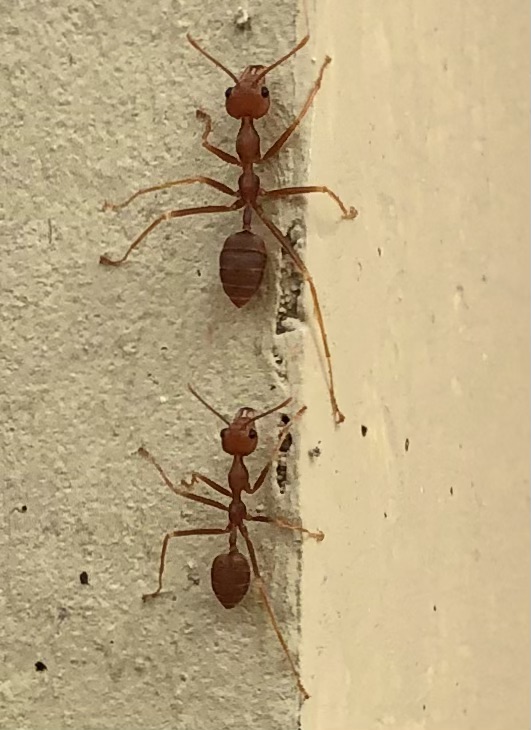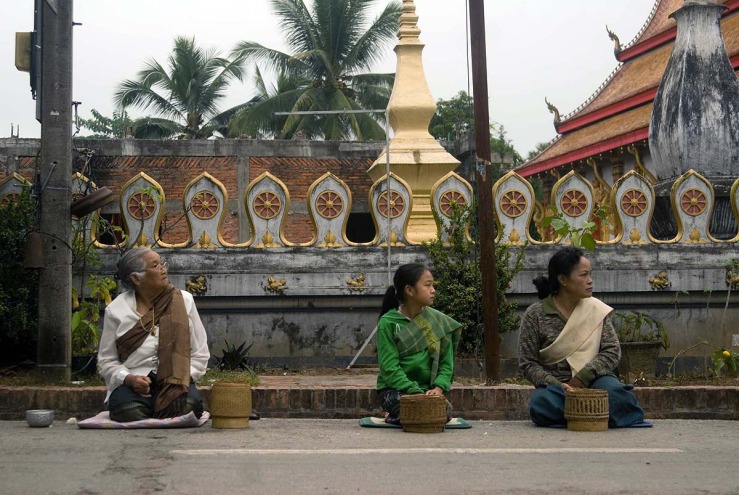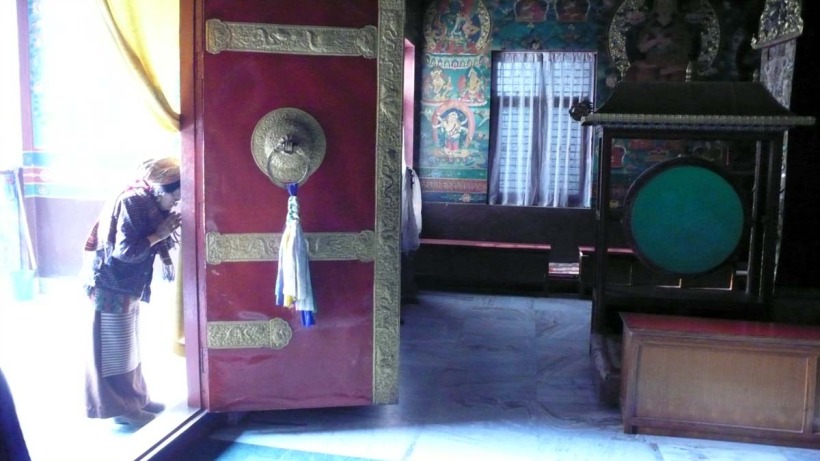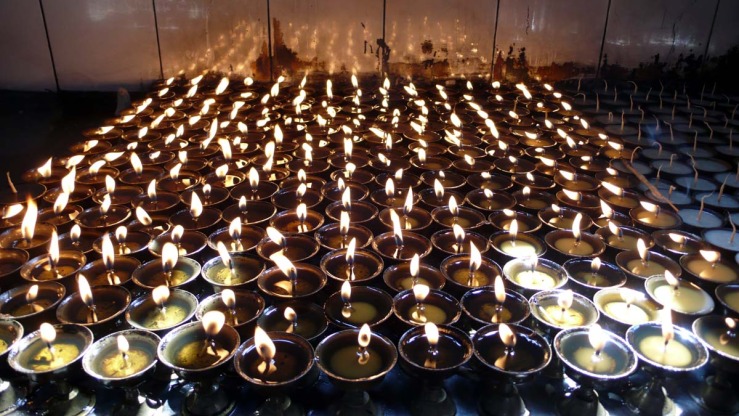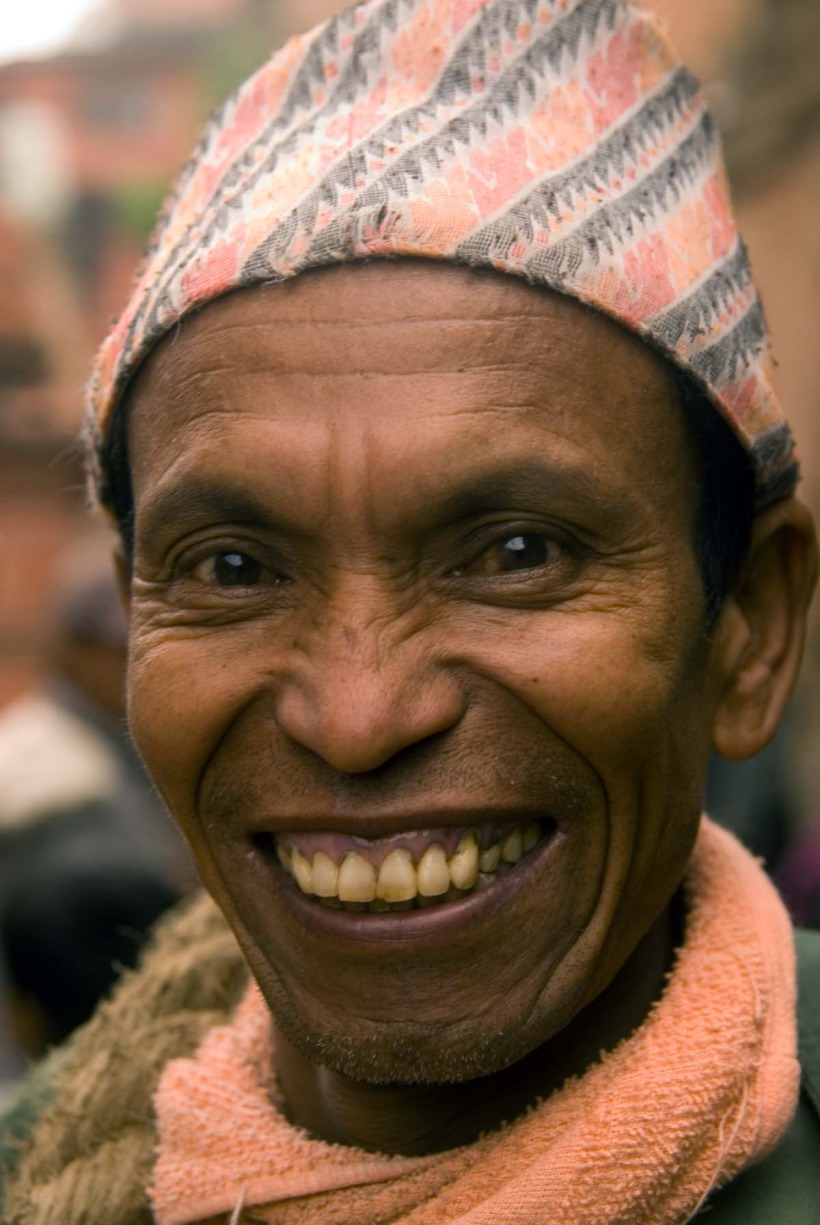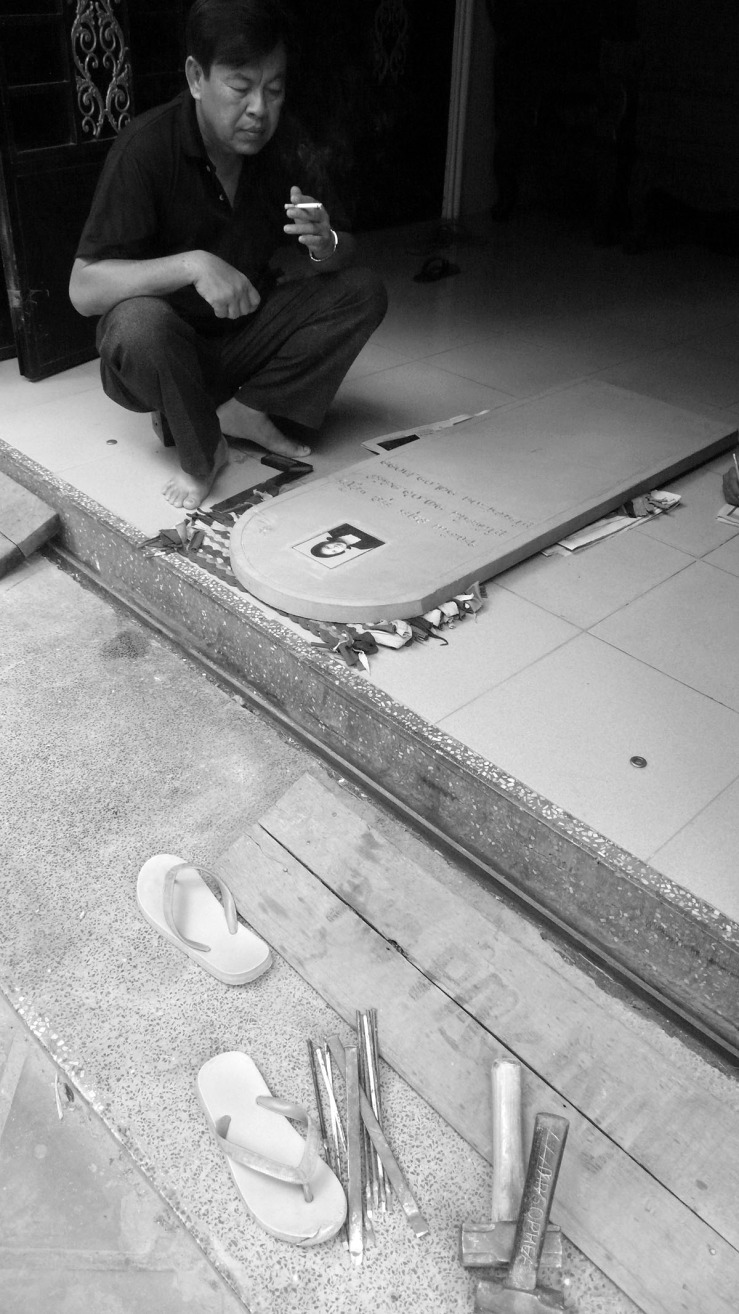Let's have a meeting! Yes. English teachers unite!
Get dressed and take our Moleskine notebook filled with poetry, drawings, dreams, stories and visions. Collect one piston-driven fountain pen filled with green racing ink.
Remember water. You've gotta have H2O where you go. It's gonna be a hot one. Seven inches from the mid-day sun.
Pedal to a class tomb on old campus surrounded by luscious green trees straining to light. They are a canopy of welcome relief. Rose petals wither on the ground.
Smile and greet your compatriots, your stalwart educational guides. Take a seat. Look around. Engage your senses.
Gaze out the window toward the lake. It is shimmering. You hear scraping. What is it? Local workers are building a wall. A new great wall. Exciting. History in the making. How do they do it?
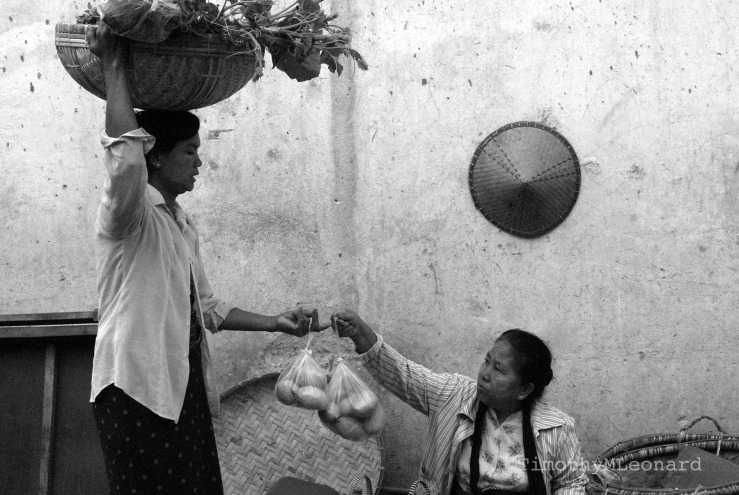
It's simple. Materials and raw labor.
Ten village men and women - who do most of the heavy lifting - bags of cement, trowels, shovels, a few plastic buckets, water, piles of gray bricks, empty drums for support, some boards and a couple of wheelbarrows.
Step 1. Build rickety scaffolding using drums and boards. Remove the old steel fence. Discard to side.
Step 2. One team mixes cement and water. Shovel into buckets. Another team puts bricks into a wheelbarrow and pushes it to a dumping area.
Step 3. Men wait for women to hand them bricks and buckets of cement. They slather on the goop and align bricks. Brick by brick the wall goes up. It blocks the green sward, blue lake and wild flowers.
Only the sky is safe.
Step 4. Another team coats the exterior with a bland gray mixture.
It's never going to be finished. Art is like that. It's so beautiful you feel like crying.
Someone steps to the podium and starts speaking - using exquisite language - about the value of education. Cost benefit analysis. Profit and loss statements. How we have a huge responsibility to our shareholders.
During a brief moment of silence you hear a shovel, a trowel and laughter.
Another day dawns in paradise.
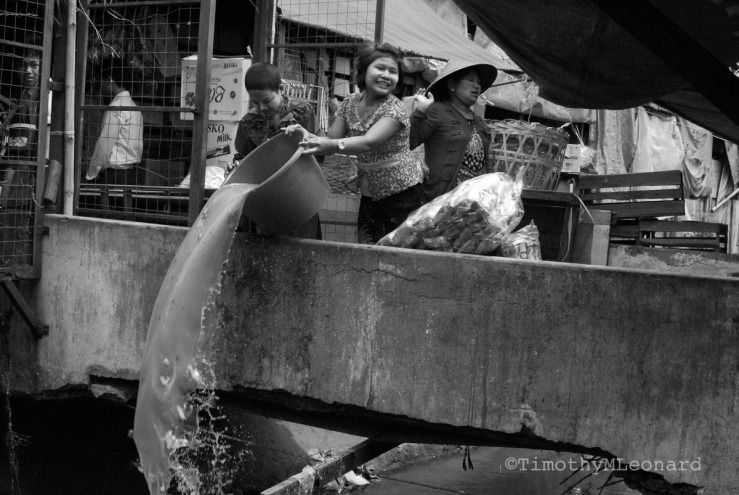
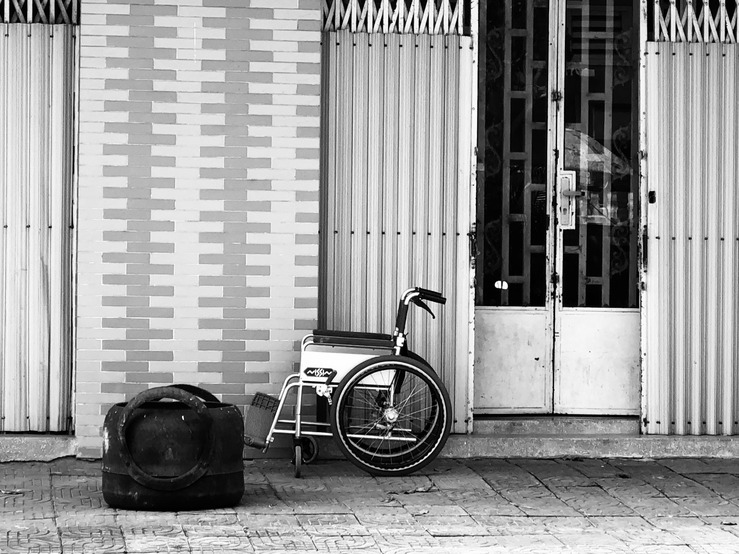






 Share Article
Share Article 